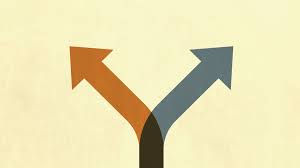Discernment
- Ann
- Jul 19, 2020
- 3 min read

Ann: Richard, would you talk to me about discernment? And also, if so inclined, about my father? It is his birthday today.
Richard: Ah, what a beautiful confluence of issues. Discernment is about discovering what works for you and letting the rest go. Your father’s role in your life – and in his own - was about discerning how he could wrap his dark and light elements into a functional and palatable life. We all of us in one way or another are on a similar journey, and we all of us fail or succeed to some extent or another.
What is important to remember is that, with discernment, we do not have to choose attack or abandonment, for this is a false choice. We can leave judgement at the door and instead choose conversation which is the workhorse of discernment.
So let’s talk about it. Discernment is not a black and white concept. Discernment does not say, “This is the truth and that is not.” Discernment knows that judge and jury functions do not operate within the human neuropsychiatric complex in any reliable way.
We can, however, rely upon our own internal resonance which, if allowed to operate freely and followed by discernment, can move us into less static-filled airways. For example, discernment may say,
1. “This makes my heart expand, this makes me feel kinder towards myself and others. Let’s stay here.” Or,
2. “This makes me feel uncomfortable, not sure why.” Then discernment goes to work excavating the shades of those reactions. What within me is reacting? Can I work through it, can I let it go, or do I need to remove myself from the situation?
3. “This makes me angry, not sure why.” Is the ugliness of the anger inside me grafted onto my external experience or is it coming at me from the outside trying to get a toehold so that it can mess with my soul and my psyche?
4. "Is there something here that I can learn or should I just walk away?" If I walk away, is it because I know that right now I can’t handle the disruption that this stimulus has created? Or have I come across something that should not be allowed within my protected and sacred space?
We are all of us constantly called upon to distinguish our reactions from our responses. What hurts us may have many sources, some constructive, some not, but all of them fruitful in expanding our consciousness of who we are and what makes us tick – or fly off the handle, as the case may be and as I can well attest.
No one said discernment is easy but practice makes better if not perfect. What we are talking about here is the examined life. Socrates said that the unexamined life is not worth living, and by "living," I would suggest that he meant expanding.
Whether we learn from joy or pain, we learn. And when we learn, we expand our access to God’s Holy Communion, and when we do that we rest in our own sacred center regardless of whether we are happy or sad.
It is not easy, but it is the Way that Jesus taught, that many other enlightened figures have tried to explain to us. Discernment always leads to compassion. Not condonement but compassion, understanding for yourself and others. That compassion will then inform the actions you choose to take, and the direction of your life will follow as night follows day.
Without discernment, your life leads you and God will not be able to get a word in edgewise. When you feel calm, perhaps sad, perhaps joyful, but steady, then have found your road to discernment and peace.
July 19, 2020




This is a helpful one for me. Thank you Ann and Richard